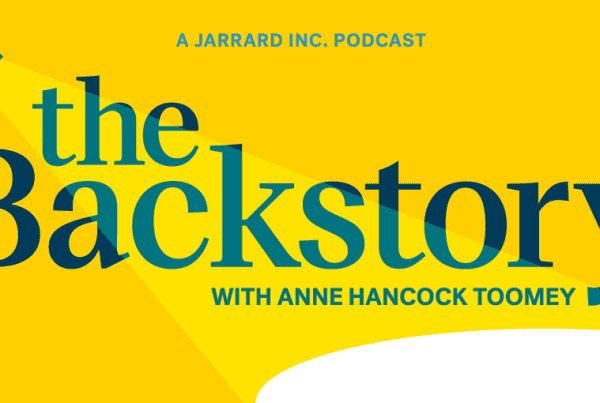The Big Story: How Gwyneth Paltrow turned Astronomer’s scandal into PR gold
“The crux in Astronomer’s video was to take public curiosity and redirect it from the incident to the business itself.”
When the Crisis Playbook Slays… and Bombs
3.5-minute read
It had the makings of an SNL sketch with an A-list host.
Astronomer, the tech co whose erstwhile execs were caught canoodling on a Coldplay concert kiss-cam, recently seized the moment to rise from obscurity to household name. And bypass infamy in the process.
Now that’s a win.
After consciously uncoupling from its CEO and HR chief, Astronomer pulled off an audacious PR strategy to mitigate a reputational crisis: humor.
The company hired Goop maven Gwyneth Paltrow, ex of Coldplay’s frontman Chris Martin, to serve as its “temporary spokesperson.” In a short video, Paltrow delivers tongue-in-cheek straight answers to juicy FAQs with the finesse of finest corporate flak.
Social media went wild. Some declared it Oscar-worthy. Well, that’s debatable. But it’s certainly worthy of a flashy crisis management case study for MBA and comms students.
That’s because winking at a crisis upended the traditional playbook, turning a reputational scandal into what Smart Company calls “PR gold.”
“Astronomical” Response
Astronomer’s viral video appeals because its spirit is wry, self-aware and self-confident without being cocky. It brings the audience into the joke.
The response is a sign of changing crisis comms strategy in our social media age, says the WSJ.
“With companies forced to respond faster to public-relations disasters that can escalate on a global stage within minutes, the goal has evolved beyond mere damage control to creating moments that are just as viral as the original crises.”
The fast-funny style of response “allows people to both understand the issue and, in some cases, laugh along.”
The gamble turned a “viral disaster into a marketing win,” says Business Insider.
Ahem…Caution Advised
Humor plus crisis is a dangerous cocktail. It has the very real potential to come off as tone-deaf and flippant with a wicked, long-lasting hangover. Success depends on your existing brand’s tone, the severity of the crisis and audience expectations.
Essentially, humor is more likely to work to diffuse or apologize in a crisis management situation when the stakes are low. Think product shortages, minor tech issues and such. Also, when:
- The humor is self-deprecating, not defensive.
- It fits audience expectations for the brand and its tone.
- The core message still takes responsibility seriously.
But it’s guaranteed to backfire when the crisis or issue involves harm, injustice or serious emotional impact. When the “fun” is disrespectful of the audience. And when it seems to minimize or deflect responsibility.
So, let’s agree that maybe, just sometimes, if you find yourself unexpectedly and unhappily in the spotlight, don’t just run to the wings. (Or duck and cover!) Instead, make full use of the stage. Do it fast, before the limelight fades. And pull out that sparingly used quirky screwdriver – aka humor – from your full array of crisis management communications tools.
And the awards go to…
Cue winners and losers in the humor-to-diffuse-crisis category. The examples below include a truly Oscar-worthy showing. And one earning a bushel of rotten tomatoes.
Taking Home the Statuette: KFC UK’s “FCK” Apology
Situation: In a potentially disastrous logistical crisis for the chain, KFC ran out of…well, chicken. The issue resulted in widespread closures across the UK.
Response: KFC published a full-page ad with an empty bucket emblazoned with the re-arranged logo: “FCK.” The letters were followed by an apology: “We’re sorry. A chicken restaurant without any chicken. It’s not ideal.”
Why it worked:
- Acknowledged the mistake directly.
- Showed self-awareness through clever wordplay.
- Fit the brand’s playful – but not careless – tone.
- Defused customer anger with humility and wit.
Nominated: Taco Bell’s Beef Lawsuit
Situation: A lawsuit claimed Taco Bell’s “seasoned beef” wasn’t actually beef because it contained too much filler.
Response: In an extensive campaign, Taco Bell ran sporting ads saying, “Thank you for suing us,” and then took the opportunity to give details about their beef content (88% beef). The CEO used social media and TV to jokingly invite people to “see what’s really in our beef.”
Why it worked:
- Used a confident and cheeky tone.
- Reinforced transparency.
- Customers saw Taco Bell defending itself with humor and facts.
Still Showing: Netflix’s Periodic Platform Issues & Cancellations
Situation: Outages and unpopular show cancellations spark backlash.
Response: Instead of purely technical responses, Netflix’s approach to platform issues leans into self-deprecation. For example: “We’re sorry you can’t binge tonight, we’re crying too.” They also incorporate pop culture memes to soften the blow and provide playful responses on social media that acknowledge the inconvenience in a fun or humorous way.
Impact: The relatable tone makes them feel like a friend rather than a faceless corporation.
Hall of Shame: United Airlines Passenger Dragging Incident
Situation: A paying customer was violently removed from an overbooked plane.
Initial response: CEO Oscar Munoz described it as “re-accommodating” the customer.
Why it failed:
- The euphemistic language read like dark humor—unintentionally.
- Made the situation worse by minimizing the incident.
- Humor (even unintended) made the company seem out of touch.
Crises are inherently high-stakes moments to navigate. Get to know the proven playbook. But… when the moment feels exactly right… try flipping the script.
Image credit: Shannon Threadgill




